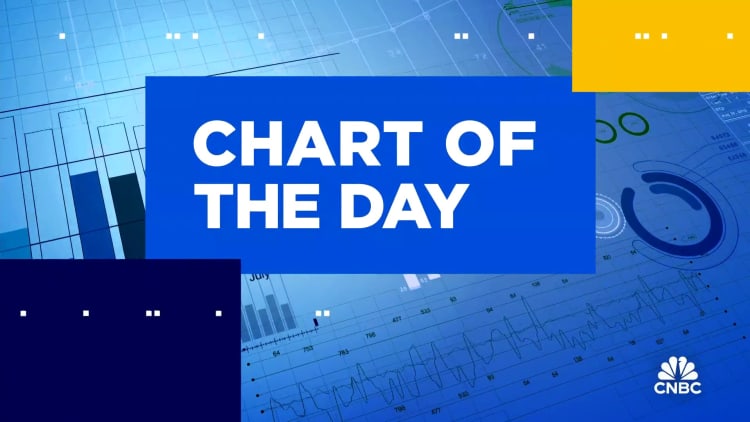
Meta shares tumbled 10% on Thursday, their worst day since October 2022, after the company issued weak revenue guidance that overshadowed its first-quarter earnings beat.
The stock closed at $441.38, wiping out roughly $132 billion in market cap from Wednesday’s $493.50 closing price before earnings.
The company reported $4.71 in earnings per share on $36.46 billion in revenue for the quarter, exceeding the $4.32 in expected earnings per share and $36.16 billion in expected sales, according to LSEG.
The stock sell-off gained pace in extended trading on Wednesday after CEO Mark Zuckerberg discussed spending in areas such as artificial intelligence and mixed reality that are not currently profitable.
Meta expects second-quarter revenue of $36.5 billion to $39 billion. The midpoint of the range, $37.75 billion, falls short of analysts’ average estimate of $38.3 billion.
Meta CEO Mark Zuckerberg attends the Senate Judiciary Committee hearing on online child sexual exploitation at the U.S. Capitol in Washington, D.C., on Jan. 31, 2024.
Nathan Howard | Reuters
JPMorgan analysts reiterated their overweight rating of Meta while dropping their price target to $480 from $535, citing the company’s increasingly heavy AI investments they believe may ultimately pay off.
“Meta’s virtual ownership of the social graph, strong competitive moat, and focus on the user experience position it to become an enduring blue-chip company built for the long term,” they wrote in a note Thursday.
Analysts at Bernstein, retaining an outperform rating on Meta shares, reduced their price target to $565 from $590, and described the company’s current business strategy as an “expensive offensive” with a longer payback.
“We get the uncertainty, but Meta deserves to retain an elevated multiple here,” they wrote in a Wednesday note. “Without sounding overly religious, you either believe in Zuck or you don’t, and we do.”
Barclays analysts maintained an overweight rating of Meta stock and lowered their price target to $520 from $550 in an investor note Wednesday. They affirmed their faith in the “name long term” despite what they expect will be “a bumpy ride for the rest of 2024 as revenue growth rates decelerate a bunch from here.”
“If there is anything META has proven over the years, it’s extremely good at executing during big platform shifts in tech, arguably the best,” the Barclays analysts wrote. “We didn’t hear anything from Zuckerberg that causes major concern.”
— CNBC’s Michael Bloom contributed to this report.

